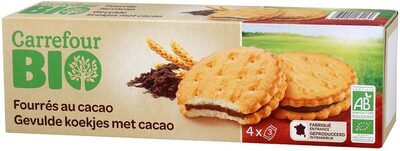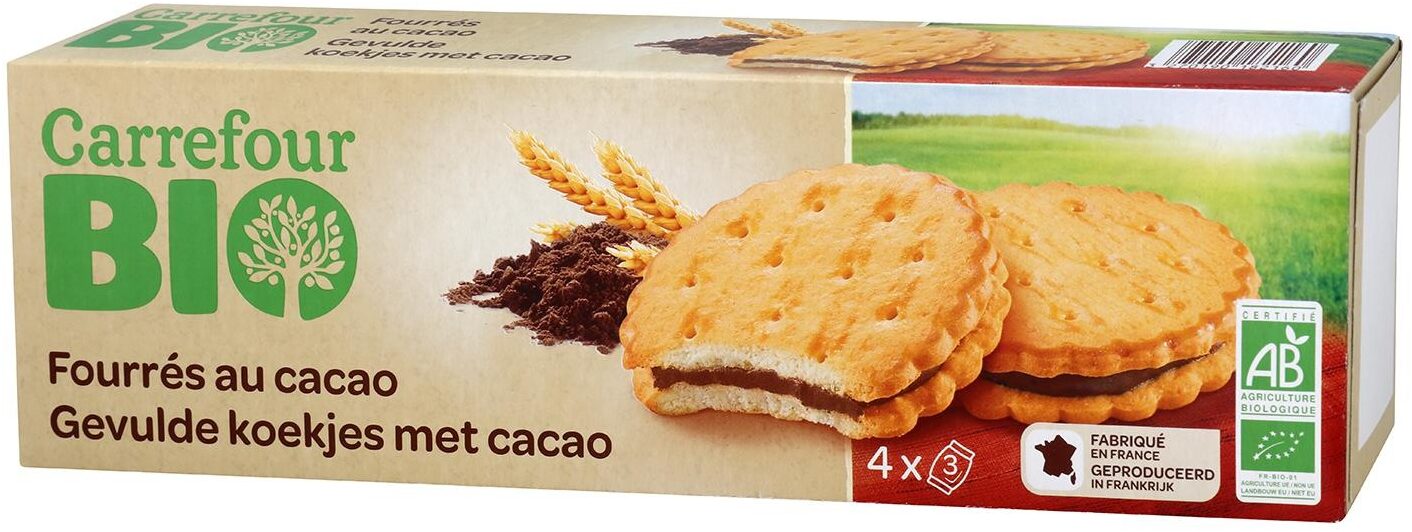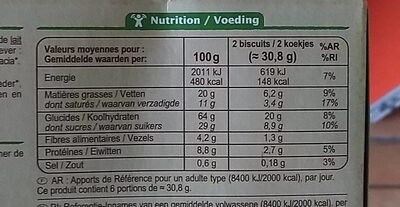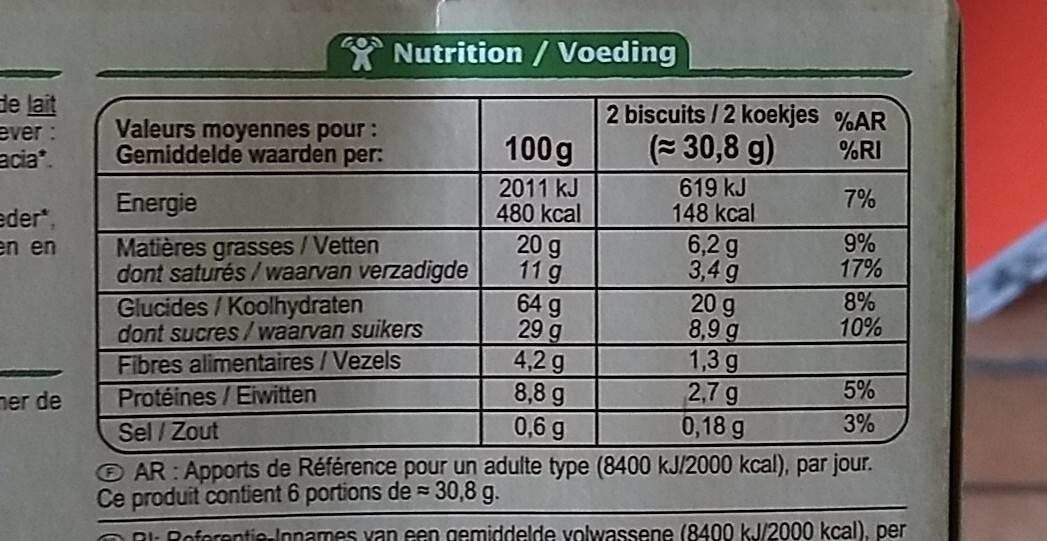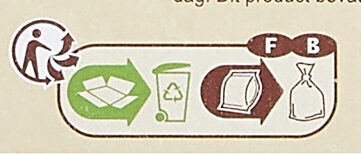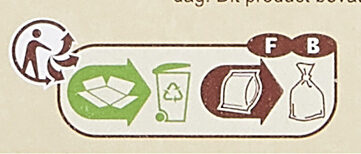Fourrés au cacao - Carrefour Bio - 185 g
This product page is not complete. You can help to complete it by editing it and adding more data from the photos we have, or by taking more photos using the app for Android or iPhone/iPad. Thank you!
×
Some of the data for this product has been provided directly by the manufacturer Carrefour.
Barcode: 3270190182160 (EAN / EAN-13)
Common name: Biscuits fourrés au chocolat
Quantity: 185 g
Packaging: Cardboard, fr:Film plastique
Brands: Carrefour Bio, Carrefour
Categories: Snacks, Sweet snacks, Biscuits and cakes, Biscuits, Chocolate biscuits, Filled biscuits
Labels, certifications, awards:
Organic, EU Organic, EU Agriculture, FR-BIO-01, Made in France, No palm oil, AB Agriculture Biologique, fr:Agricultura UE, fr:Agricultura UE/no UE, fr:Agricultura no UE, fr:Ecológico, fr:Ecológico UE, fr:Hecho en Francia

Manufacturing or processing places: BOUVARD BISCUITS S.A.
Traceability code: EMB 39113 - Chassal (Jura, France)
Link to the product page on the official site of the producer: http://courses.carrefour.fr/drive/tous-l...
Stores: Carrefour, carrefour.fr
Countries where sold: France, Italy, Spain, fr:Francia
Matching with your preferences
Other information
Conservation conditions: À conserver à l'abri de la chaleur et de l'humidité. Pour une dégustation optimale, à consommer de préférence avant le : voir sur le côté de l'étui.
Customer service: Interdis - TSA 91431 - 91343 MASSY Cedex - France
Report a problem
Data sources
Product added on by pierrekilly
Last edit of product page on by scanbot.
Product page also edited by beniben, bobobeauvais, desan, driveoff, ecoscore-impact-estimator, emmanuelduacap, hhassan, inf, jcr83, kiliweb, openfoodfacts-contributors, org-carrefour, packbot, quechoisir, roboto-app, segundo, tacite, teolemon, thaialagata, yuka.C5ZtLN6PI-99HfWJ0LgW_yOANMbBL-MCA0Ewog, yuka.SEtzTVFLOERwYWc2aS9JNDd6cjZwWU5WK2NXMFJGK3JkdEFBSVE9PQ, yuka.WW9VeUxKd0NpTXNRa2NReDJUTDgvZjVFMmEvMUJtTzdHZHNLSWc9PQ, yuka.WktNU05Qc01tK0l3cWZZVjhoYjAwNGxVbnJLcmNsbWFMTTBmSVE9PQ, yuka.Ylk4NUFJRWZpYUVRdXNRN3owN3QyT3QvbTcrcVVsS1NLclVKSWc9PQ, yuka.ZmFzL0xwVXhxdjBUcFAwMXhoangrKzF4MTUrT1RINmRKYklOSWc9PQ, yuka.ZmZ3YUthMGVnZlkzeXZNaXB4YkV4NGxuM2NiM1pVeUpOTkZBSUE9PQ, yuka.sY2b0xO6T85zoF3NwEKvllVaf-HcnG_EbzLhnkO6yMjSLK7jaPUr65WmAas, yuka.sY2b0xO6T85zoF3NwEKvlmliXIvUs2_8JwTks0mHwfGSJ6f5c-B4_bL2Eas, yuka.sY2b0xO6T85zoF3NwEKvln1YSYbVgg_dBRDfu26W6oaFdYK5OMhX_4noDqs.
